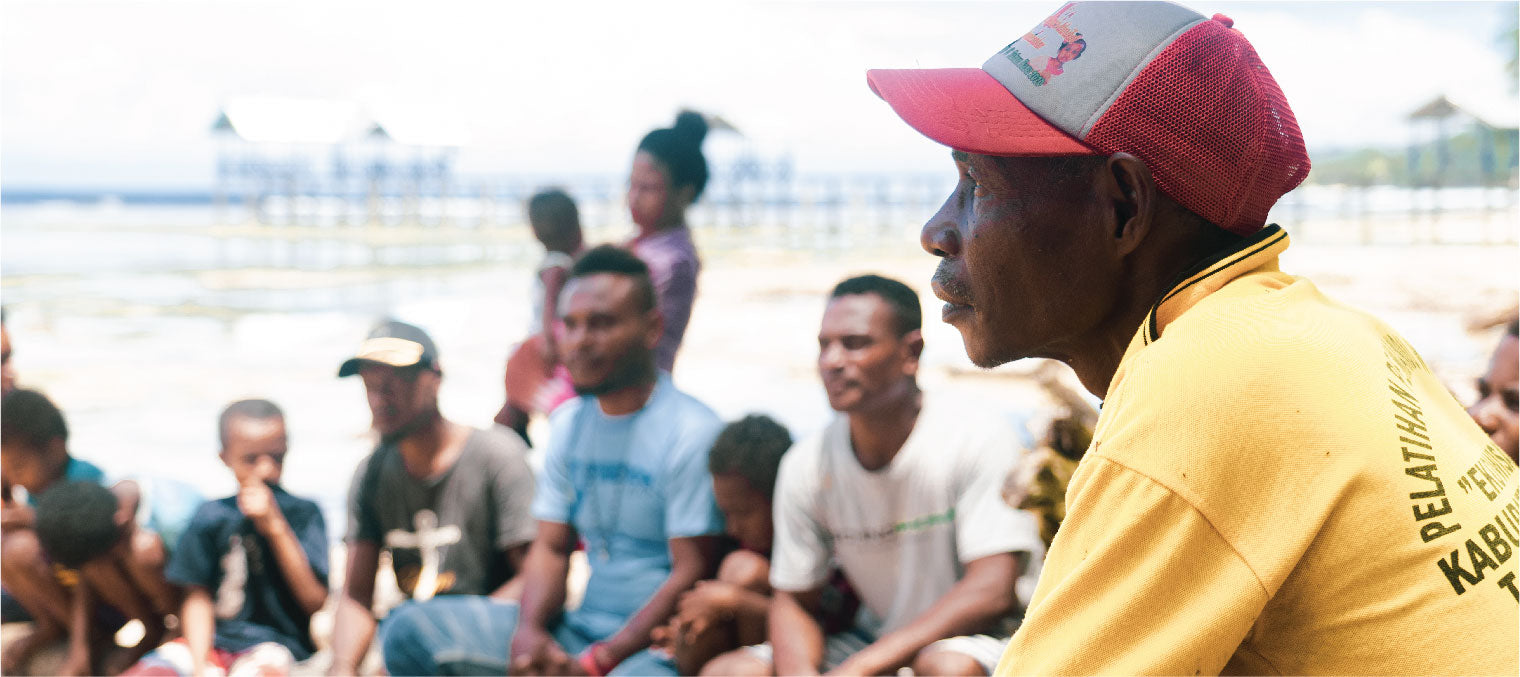
Biak Region Sustainable Development Report
Biak Region, West Papua, Indonesia
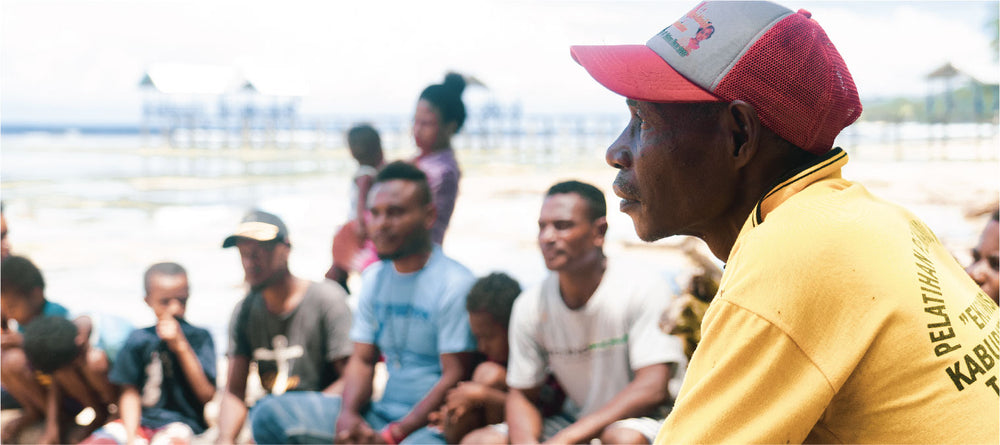
Biak Region
This page details the UN Sustainable Development Goals being addressed by the SeaTrees project in the Biak Region of West Papua, Indonesia.
Sustainable Development on Padaido Island
SeaTrees has been supporting the regeneration and protection of native mangrove forests in the Biak Region of West Papua, Indonesia since launching in June 2019. Planting commenced in March 2020 at the newest SeaTrees planting site on Padaido Island, in partnership with our local planting partners, Eden Reforestation and the island community.

Alleviating Poverty Creates Sustainable Benefits
This project provides long-term employment and cash income for the local community. This in turn drives all of the other Sustainable Development benefits produced by the project.
Key Impact Metrics
Every 30 mangrove trees planted in this project:
- Creates 1 day of living-wage employment for local community members, helping to support 55 families
- Provides resources for local education
- Protects local villages from storm surges and sea-level rise
- Serves as critical nursery grounds for fish and shellfish, and increases local marine productivity
- Has the potential to sequester more than 9 metric tons of carbon dioxide of the 25 year life of the trees
Sustainable Development Goals addressed by the project
SeaTrees evaluates this project annually to measure its impact on all relevant Sustainable Development Goals.
The Biak Island Region project addresses eleven SDGs. Read below for more details.
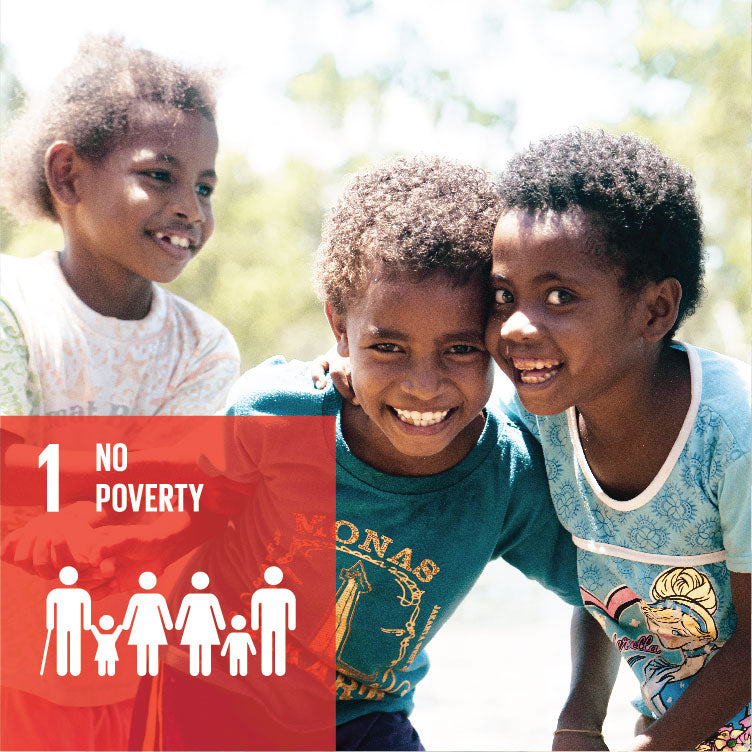
No Poverty
There were few cash-paying jobs on Padaido Island prior to the planting project. 55 people are now employed as planters and 'forest guards'.
This steady income helps to lift 55 families out of poverty and the bottom 40% of income levels in Indonesia.
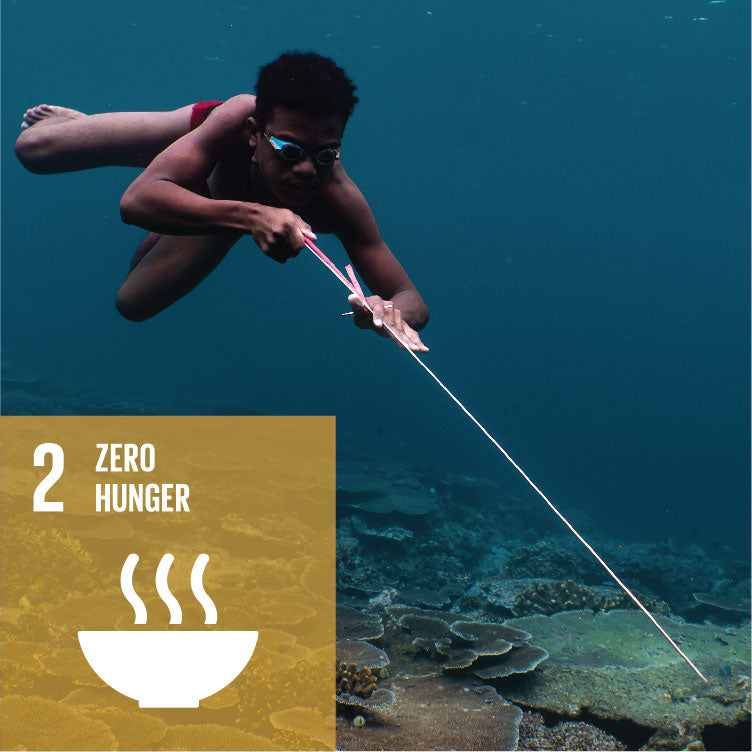
Zero Hunger
Before this project started, villagers relied primarily on subsistence food sources. These can be unreliable and are threatened by natural disasters and climate change.
The community now the ability to purchase a more diverse food supply, including yams, sweet potatoes, taro, green vegetables, fruit, to supplement what they can grow or catch.
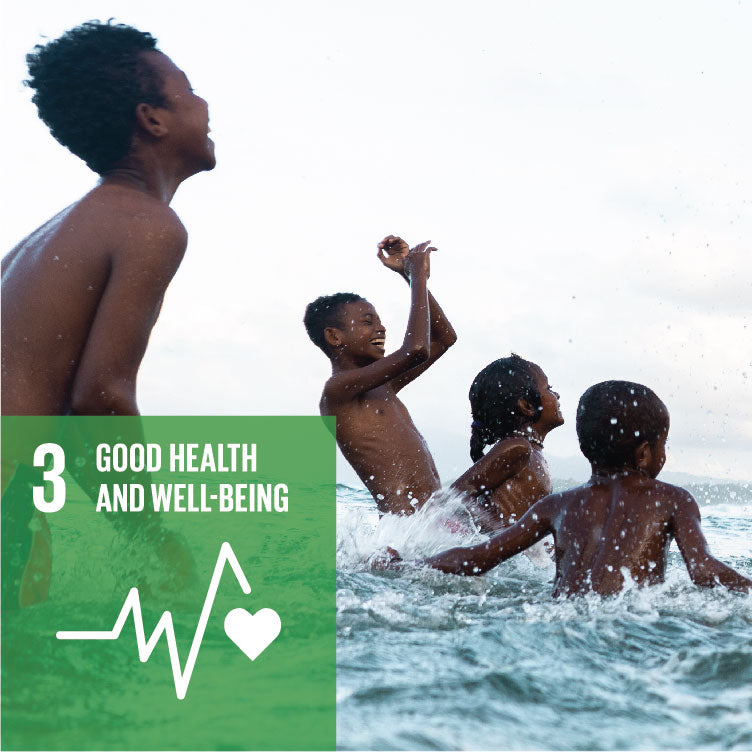
Good Health
There is no national health coverage in the region; medical services are paid for in cash.
Families are now able to purchase medicine and visit medical professionals, which improves quality of life and can save lives. Just like local tree planter, David Sawek and his family. (Read David's story).
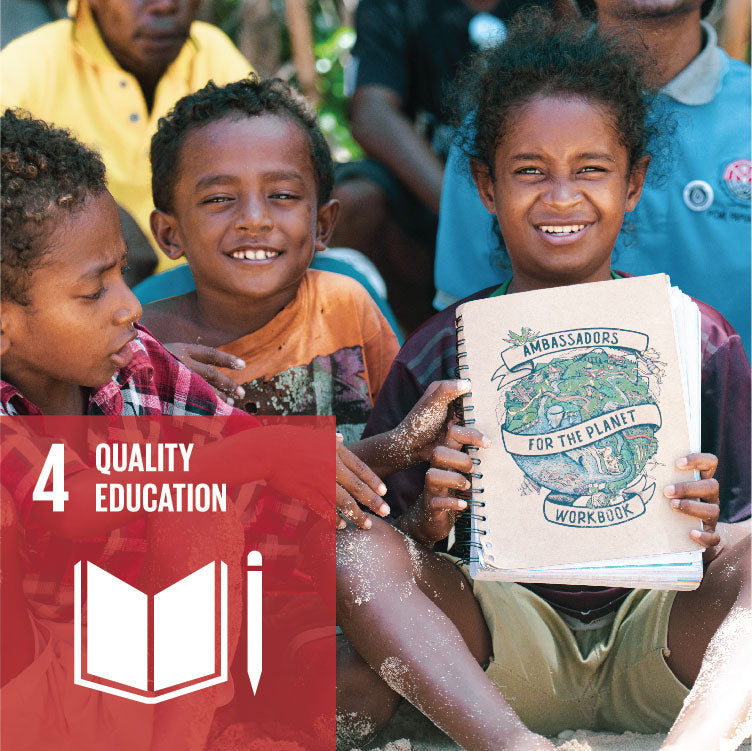
Quality Education
Consistent education is a challenge on the remote islands of the Biak region.
Long term employment enables families to make longer term investments into their children's education, including school fees, textbooks, and uniforms.
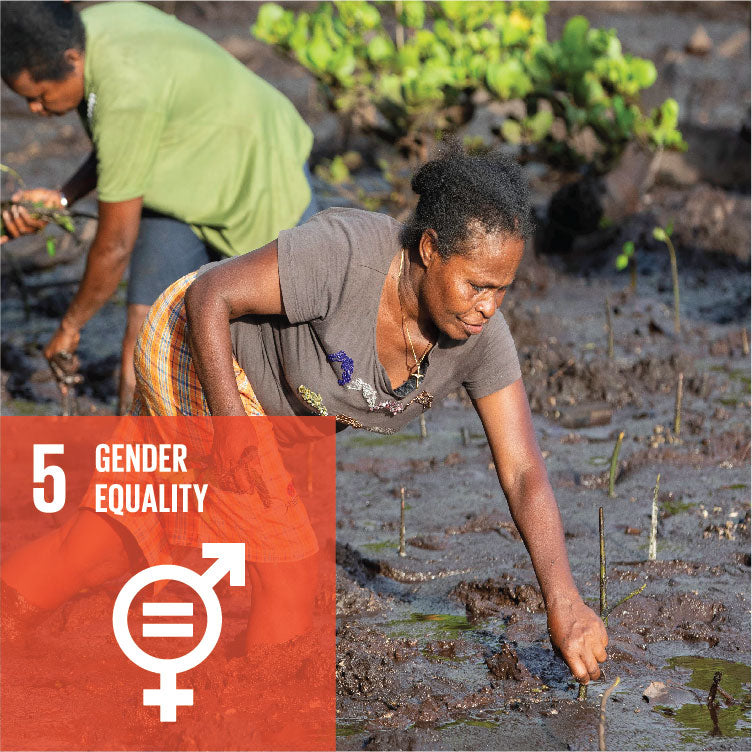
Gender Equality
Gender equality is often heightened in communities where access to resources, wealth and education is limited.
This project hires a minimum of 50% women for all planting jobs and female workers are often placed in managerial positions.
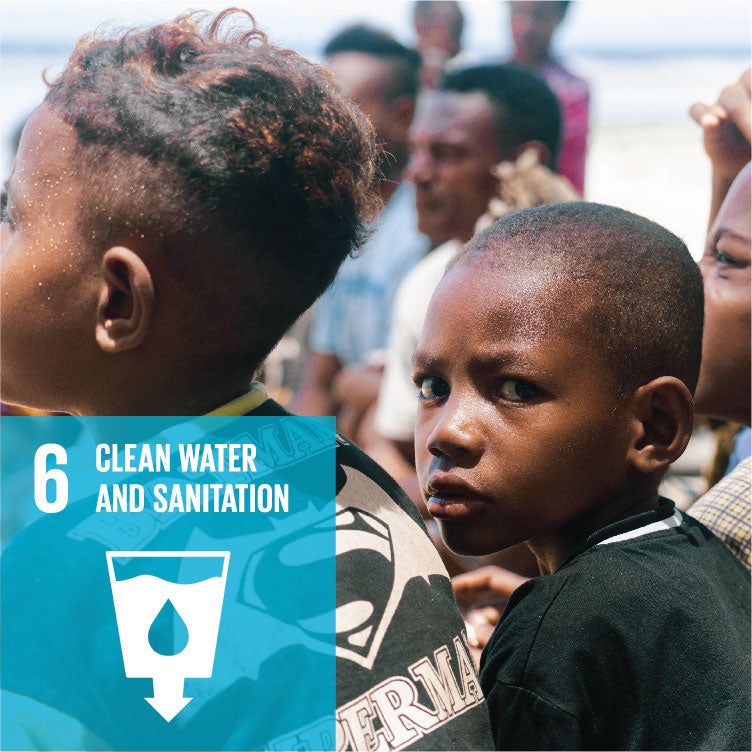
Clean Water
Fresh water is a significant challenge on remote islands, where groundwater supplies do not exist.
Cash income allows the purchase of rainwater catchment barrels for households. This is a critical source of fresh water for the families on the island.
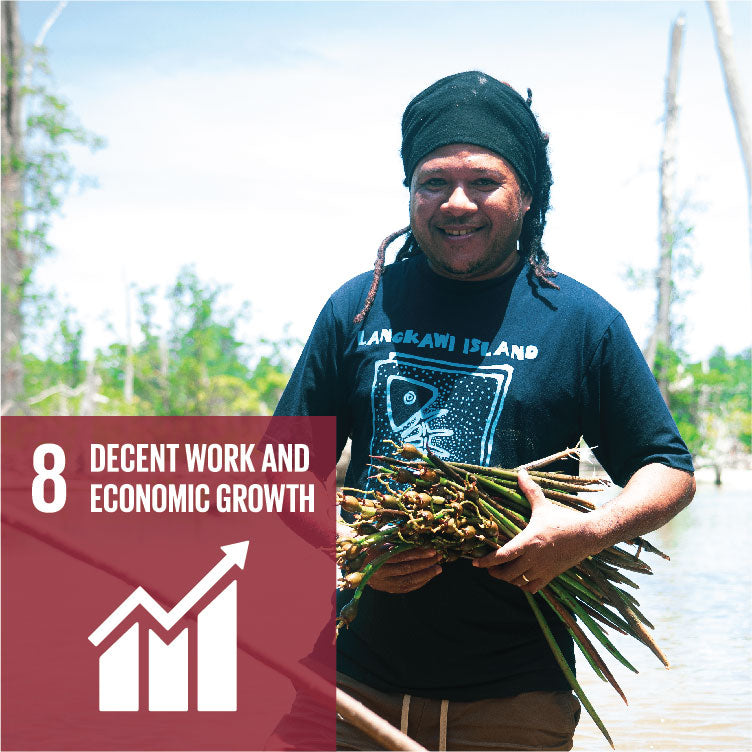
Decent Work
Decent work means opportunities for everyone to get work that is productive and delivers a fair income, security in the workplace, social protection for families, and better prospects for personal development and social integration.
This project ensures that men and women employees receive equal pay for the same work. People with disabilities are hired where possible.
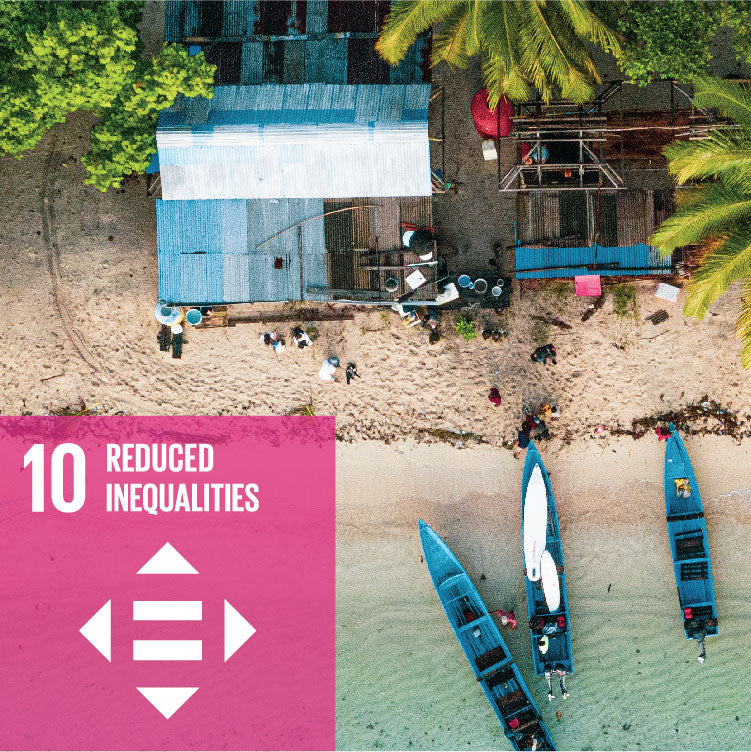
Reduce Inequality
Inequality within and among countries is a persistent cause for concern. Padaido Island is a very remote corner of Indonesia and populated by ethnic minorities.
Tree planting jobs lift employees out of the bottom 40% of income for the country of Indonesia.
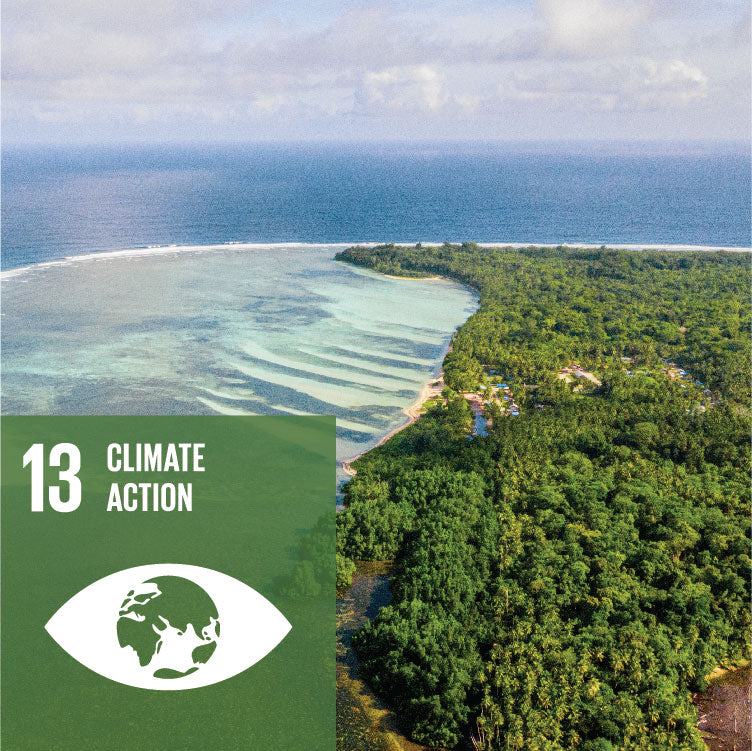
Climate Change
Climate change is a global issues that threatens all societies. Carbon sequestration in blue carbon ecosystems is one of the most effective methods to fight climate change.
At the SeaTrees site on Padaido Island, 225,000 mangroves trees are planted each year. This will sequester 70,000 tons of CO2 over the 25-yr lifetime of the trees.
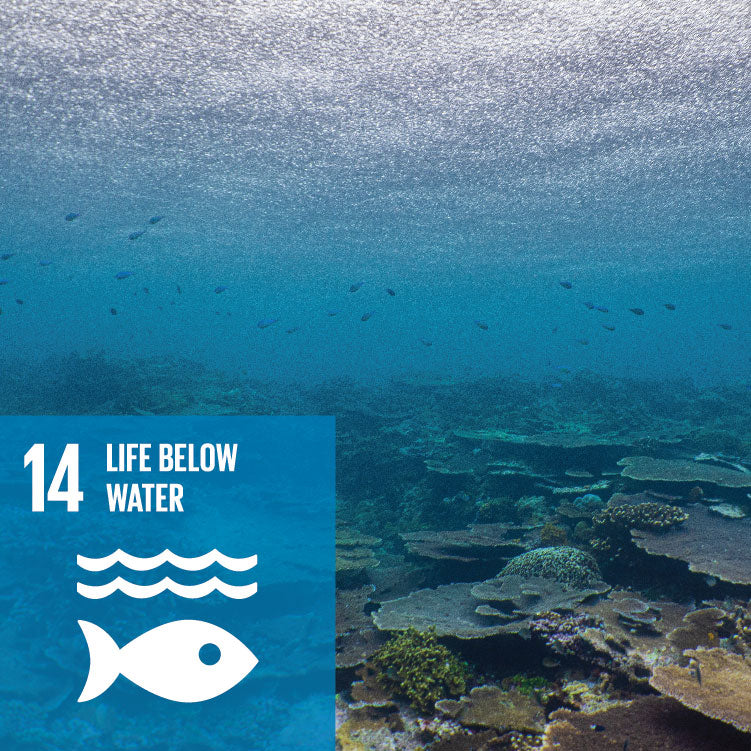
Life Below Water
The majority of the mangrove forests on Padaido Island were wiped out by a tsunami in 1996. This affects coastal ecosystems because reefs are much healthier with a nearby mangrove forest, which serves as critical nursery grounds for fish, shellfish, turtles, and birds.
The restoration of the mangrove forest on Padaido Island is expected to have significant benefits for the local ocean ecosystems.
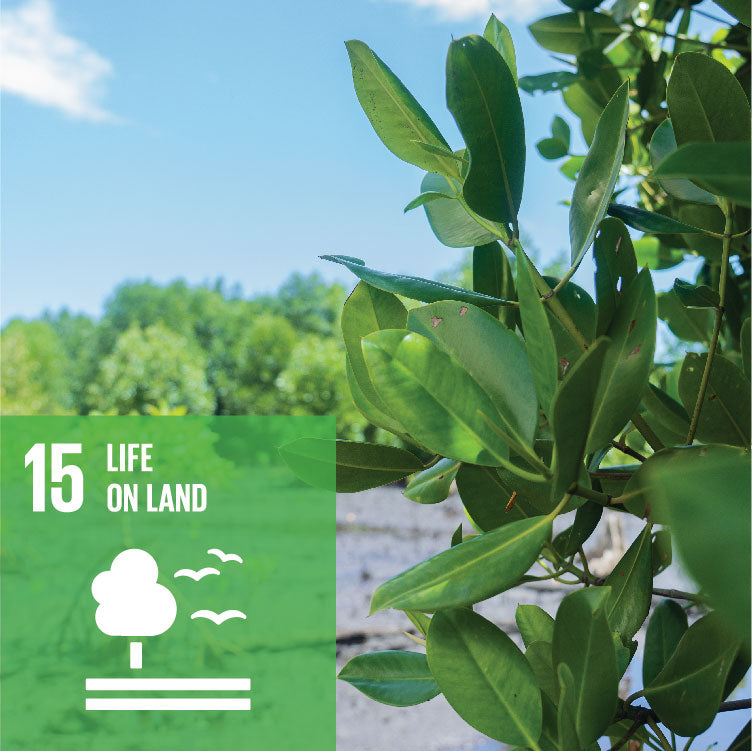
Life on Land
Mangrove forest restoration is critical in an area where 75% of the mangrove forests are degraded. Local villagers become the first line of defense for the restored forests.
Over a span of two years, 600,000 new mangrove trees will be planted on Padaido Island. As the mangrove forest matures, fruit and nut trees will be planted to further diversify the ecosystem and provide food for both humans and animals.
To read about the UN Sustainable Development Goals in detail please reference this link.

Plant your first Seatree, FREE!
- Al seleccionar una opción, se actualiza toda la página.
- Se abre en una nueva ventana.